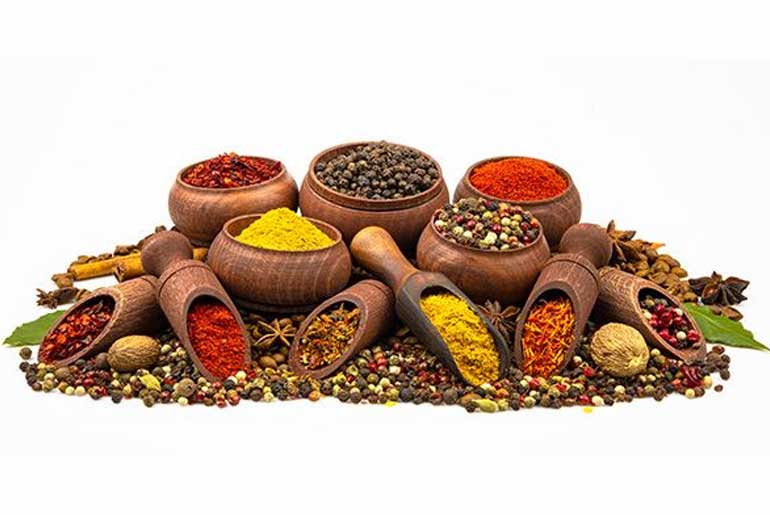The shift towards sustainable weight loss solutions over quick remedies is gaining traction among fitness enthusiasts, and for good reason. Fad diets may offer rapid weight loss results initially, but they often rely on extreme calorie restrictions or limited food groups, which can be detrimental in the long term, potentially leading to deficiencies and health disorders. To prioritize holistic wellness, a more appropriate approach involves adopting dietary practices that draw from our ancestral knowledge. This includes rediscovering ancient superfoods, such as ancient spices and herbs, which have been trusted for centuries for weight management and calorie control. Ancient Spices not only promote healthy weight loss but also contribute to overall well-being, making them a wiser and more sustainable choice for those seeking to achieve and maintain a healthy weight.
1. Cinnamon:
Cinnamon, also known as dalchini, has a rich history and a wide range of uses, as mentioned in the passage.
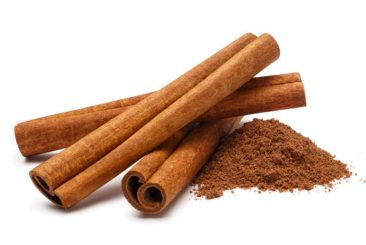
Key points:
- Historical Significance: Cinnamon has been used for thousands of years and was highly valued in ancient times. It was considered more precious than gold and silver, and it had uses in various cultures, such as in religious practices in Egypt and medieval Europe. In ancient Egypt, it was even used in the embalming process.
- Medicinal Properties: Cinnamon has been recognized for its medicinal properties throughout history. It was mentioned in ancient Chinese texts for its potential health benefits.
Health Benefits:
- Blood Sugar Regulation: Cinnamon is known for its ability to help stabilize blood glucose levels. This can be particularly beneficial for individuals with diabetes or those looking to manage their blood sugar levels.
- Weight Loss: Cinnamon is recommended for those on a weight loss journey. It can help reduce sugar cravings and promote weight loss by potentially enhancing metabolism.
Ways to Consume Cinnamon:
There are various ways to incorporate cinnamon into your diet:
- Sprinkle on Oatmeal: You can add a sprinkle of cinnamon to your morning oatmeal for a warm and flavorful touch.
- Smoothies: Cinnamon can be added to smoothies to enhance their flavor and provide potential health benefits.
- Baking: Cinnamon is a common spice in baking, used in various desserts like cinnamon rolls, apple pies, and more.
2. Ginger:
Ginger, or Adrak, is a versatile spice and herb with a long history of traditional use, particularly in ancient China and India.
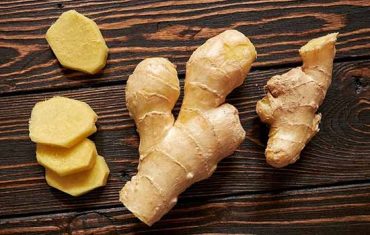
Key points:
- Digestive Health: Ginger has been recognized for its digestive health benefits for centuries. It has been used to relieve digestive discomfort, including nausea and indigestion.
- Weight Loss Support: Ginger is believed to have a role in supporting weight loss. It can aid in weight management through various mechanisms, including its potential to boost metabolism and help in fat burning.
- Detoxification: Ginger is often regarded as a detox remedy. It is thought to help the body in the elimination of toxins and can offer protection from exposure to industrial pollutants.
- Ancient Use: Ginger was widely used in ancient China and India, primarily for its digestive benefits and other medicinal properties.
Health Benefits:
- Digestion: Ginger aids digestion, which can help curb overeating and reduce the risk of weight gain. It may also alleviate digestive discomfort.
- Metabolism: Ginger is known to boost metabolism, potentially aiding in the body’s ability to burn fat.
Ways to Consume Ginger:
- Ginger Tea: Brewing ginger tea is a common way to enjoy its benefits. You can prepare ginger tea by steeping ginger slices or grated ginger in hot water. This tea not only supports weight management but also warms you up and provides relief from cough and cold symptoms.
- Culinary Use: Ginger can be added to various dishes, including stir-fries and salad dressings, to enhance flavor and provide potential health benefits.
3. Turmeric:
Turmeric, also known as Haldi, is a spice with a long history of traditional use, particularly in Indian Ayurvedic medicine.
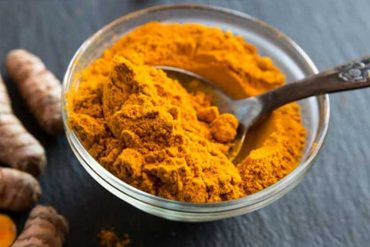
Key points:
- Anti-Inflammatory Properties: Turmeric is renowned for its anti-inflammatory properties. Curcumin, a potent compound found in turmeric, is responsible for these anti-inflammatory effects. It has been traditionally used to purify blood and boost immunity.
- Preventing Obesity: Regular consumption of turmeric is believed to have potential benefits in preventing obesity. This is because curcumin, the active compound in turmeric, can control inflammation, which is often associated with weight gain.
- Ancient Use in Ayurvedic Medicine: Turmeric has been a staple in Indian Ayurvedic medicine for centuries, where it has been used for its various health-promoting properties, including its anti-inflammatory effects.
Health Benefits:
- Weight Loss: Curcumin in turmeric can aid in weight loss by reducing inflammation and improving insulin sensitivity, potentially making it easier for the body to manage weight.
- Fat Breakdown: Turmeric is believed to support the breakdown of fat in the body, which may contribute to weight management.
Ways to Consume Turmeric:
- Turmeric Tea: You can make a warming turmeric tea by steeping turmeric in hot water and adding other ingredients like ginger, honey, and black pepper for added flavor and potential health benefits.
- Culinary Use: Turmeric can be added to a variety of dishes, including curries, soups, and stews, to enhance flavor and provide potential health benefits. It is a common spice in Indian cuisine.
4. Mustard seeds:
Mustard seeds, or Sarso seeds, are a flavorful spice and condiment that can be used to enhance the taste of various dishes. They also offer potential health benefits, including their role in boosting metabolism and aiding in calorie burning.
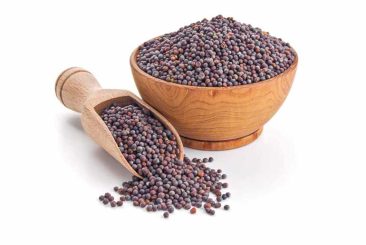
Key points:
Flavor Enhancement: Mustard seeds are known for their powerful and pungent flavor, which can add a unique taste to a wide range of dishes. They are commonly used in tempering (tadka) for dal, curries, and stir-fries.
Weight Management: Mustard seeds contain compounds that can boost metabolism, which may aid in burning calories. This makes them a valuable addition to a weight loss diet.
Ancient Use: Mustard seeds have a history of culinary use in ancient Roman cuisine. They were appreciated for their strong and distinctive flavor.
Health Benefits:
- Metabolism Boost: Mustard seeds are rich in compounds that have the potential to increase your body’s calorie-burning potential. This can be beneficial for individuals looking to manage their weight.
Ways to Consume Mustard Seeds:
- Marinades: Mustard seeds can be incorporated into marinades for meats and vegetables, enhancing both flavor and nutritional benefits.
- Homemade Mustard: You can make your own mustard at home, which can be used as a condiment for sandwiches, burgers, and other dishes. Homemade mustard allows you to control the ingredients and customize the flavor to your liking.
5. Black pepper:
Black pepper, or Kali Mirch, is a commonly used spice that not only adds flavor to dishes but also offers potential health benefits, including its role in weight management.
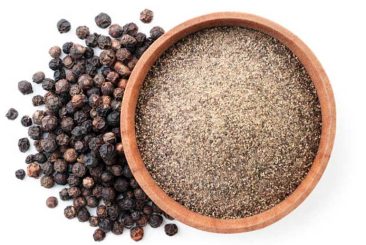
Key points:
- Flavor Enhancement: Black pepper is known for its ability to enhance the flavor of various dishes. It can add a distinctive and pungent taste to your favorite meals.
- Weight Management: Black pepper contains piperine, a compound that is believed to have the ability to boost fat metabolism and potentially aid in burning belly fat. This is one of the reasons it is often included in weight loss diets and supplements.
- Ancient Use: Black pepper has a rich history and was highly valued in ancient civilizations such as Greece and Rome. It was even used as a form of currency in some instances, highlighting its importance.
Health Benefits:
- Piperine: The active compound piperine found in black pepper has been shown to enhance the absorption of other nutrients. This can have a synergistic effect, particularly when combined with other spices like turmeric, and support various health efforts, including weight loss.
Ways to Consume Black Pepper:
- Seasoning: You can use black pepper to season a wide variety of dishes, including soups, salads, stews, and more. It not only enhances the flavors of your meals but may also contribute to its potential health benefits.
Avoid Incorporating These Ancient Spices:
These ancient spices, including cinnamon, turmeric, ginger, black pepper, and mustard seeds, can be beneficial for weight loss when combined with a balanced diet and regular exercise. However, it’s important to exercise caution and consult with a healthcare professional before making significant dietary changes, especially if you have underlying health conditions. While these ancient spices offer metabolic support, appetite control, and anti-inflammatory benefits, individual tolerance and potential interactions with medications or allergies should be considered.
Incorporating these ancient spices into your daily cooking can harness their potential to aid in weight loss and improve overall well-being. By doing so, you can enjoy the flavorful benefits of these spices while taking steps toward a healthier lifestyle.
Disclaimer:
The information contained in this article is for educational and informational purposes only and is not intended as a health advice. We would ask you to consult a qualified professional or medical expert to gain additional knowledge before you choose to consume any product or perform any exercise.

